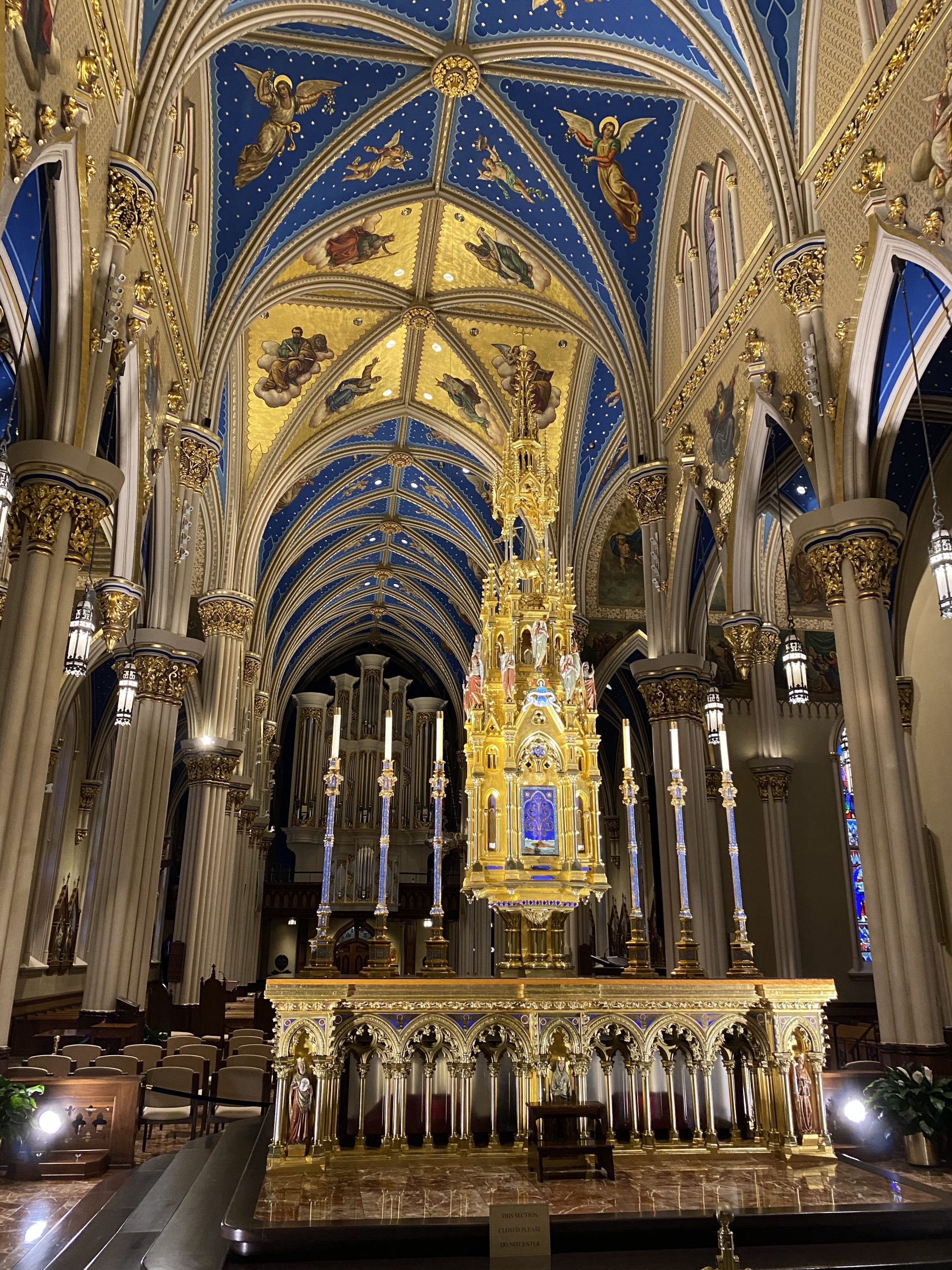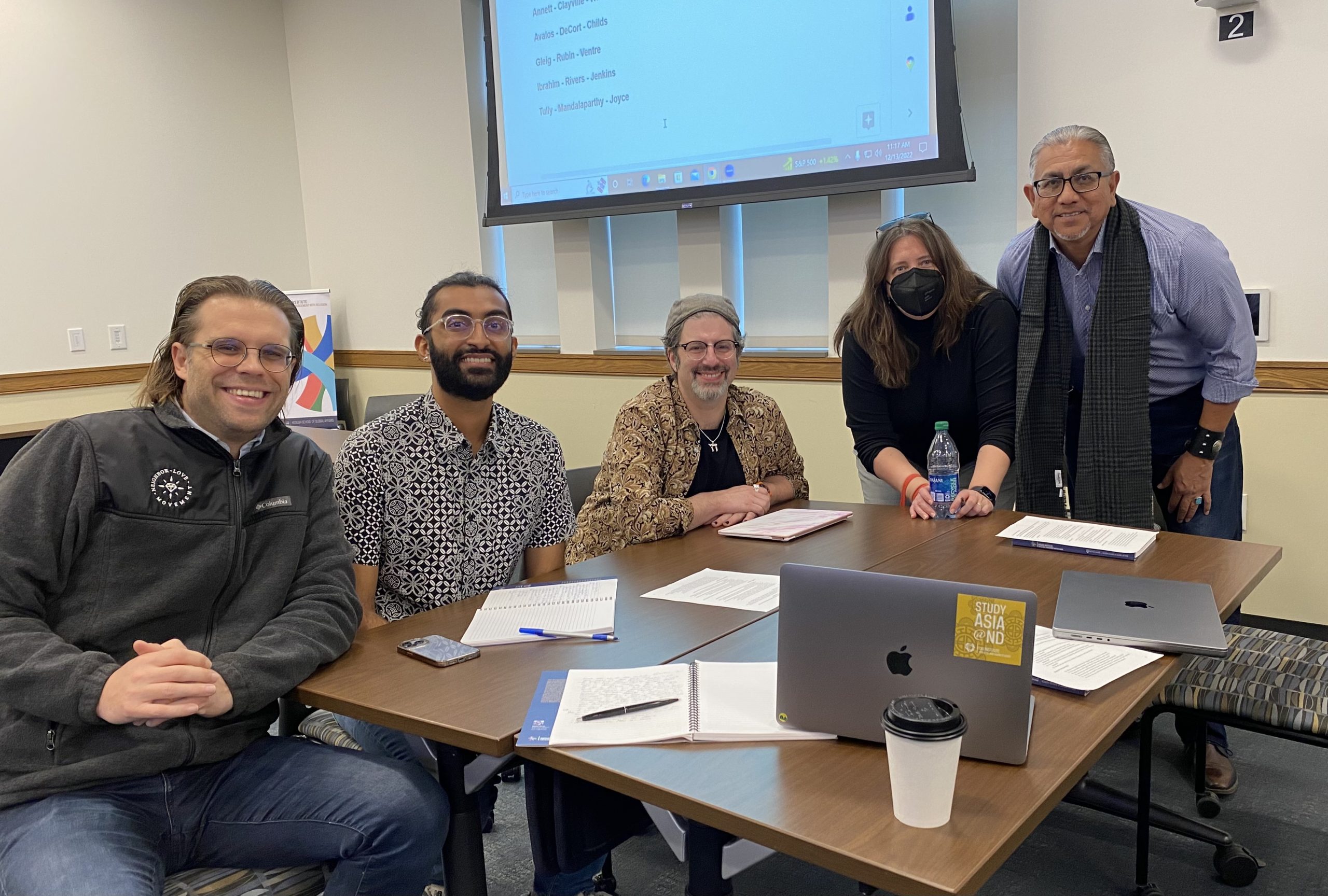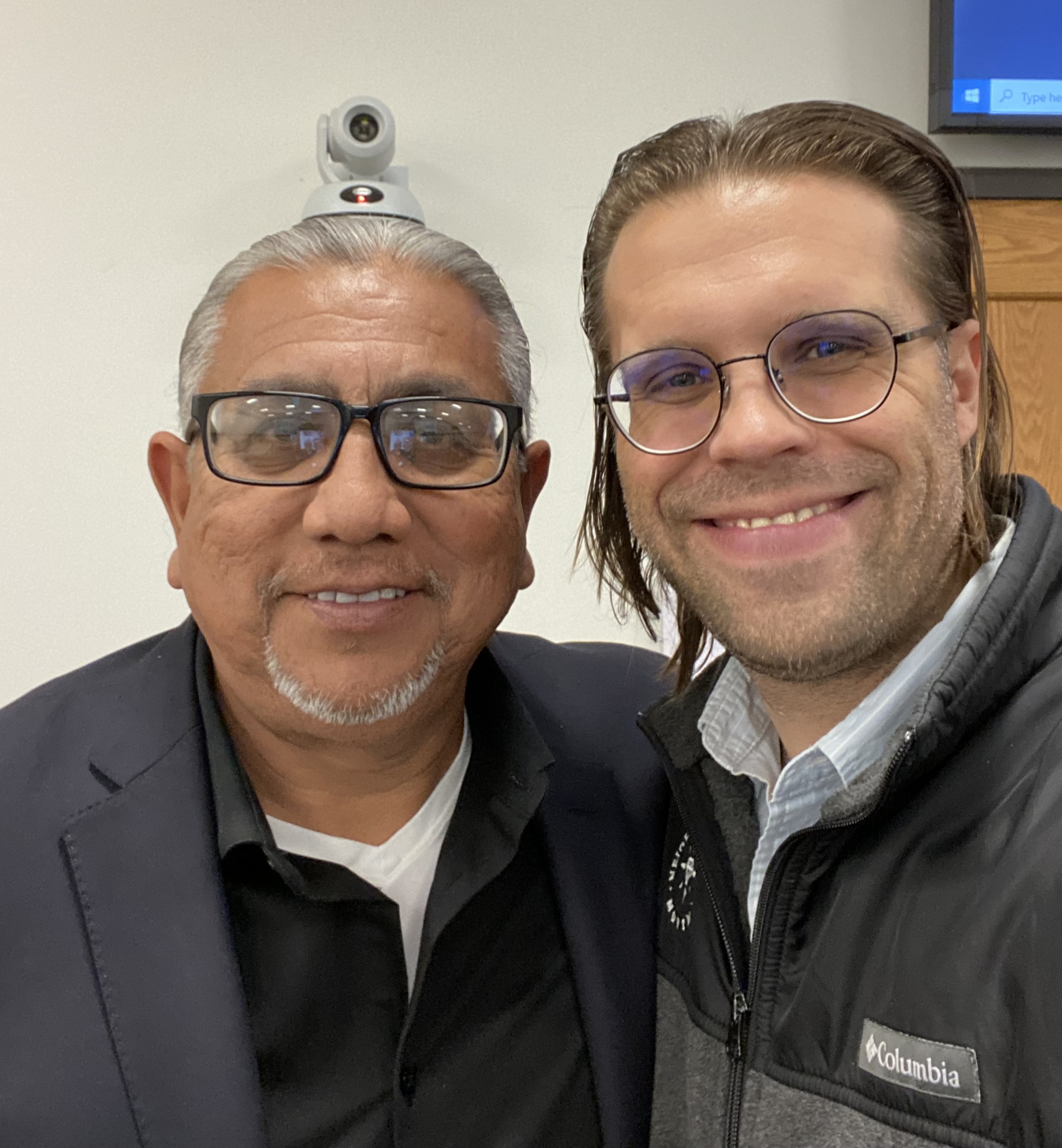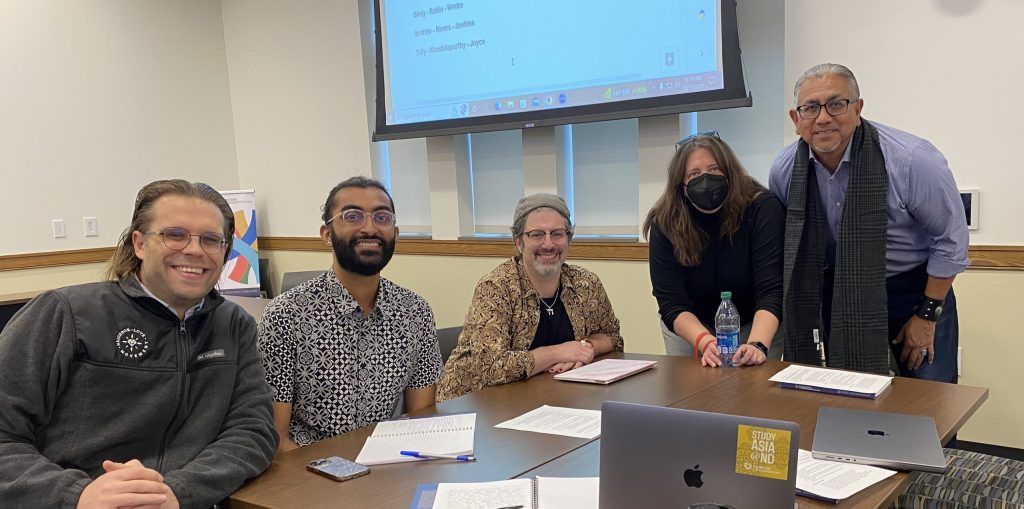Dear friends,
I hope you’re heading into a restful and meaningful Christmas. If you’re looking for an orienting companion over the holidays or a last-minute gift, keep Flourishing on the Edge of Faith in mind. International friends, kindly place orders using your favorite local book store or Amazon.
Last week, I visited the University of Notre Dame for the “Faith in the Story” conference. It was a special gift to speak about the Neighbor-Love Movement among pioneering academics, journalists, and spiritual leaders. Together we looked toward 2050 and explored where faith might be leading humanity.
On one of our breaks, I visited the campus’s astonishing Christian cathedral. It had golden altars, towering ceilings, and relics from around the world. It was a palace stunning in size and sheer opulence.

But I felt nothing.
In fact, I felt a strange sense of alarm and urgency to leave the church. Despite its soaring architecture, I felt far from Jesus and almost like my spirit was suffocating. As we exited, a British colleague cleverly commented, “We’ve come a long way from Jesus in the manger!”
Moments before, I had listened to a Native American spiritual leader, Shannon Rivers, speak about the violence of Christians against Native peoples. He confessed, “I am not a Christian” and wept over the death in his community inflicted by people who claimed Christ’s name. Others of us wept with him, and we sat in reverent silence when he concluded.
I listened to a progressive Jewish rabbi, Joshua Rubin, talk about his passion for God rather than a tribal identity that prides itself on superiority. He insisted that so much religion does everything it can to cast God out and put our favorite group at the center. But Rabbi Joshua challenged us to rediscover a love for God that grows into love for others. He also wept.
I listened to a Muslim educator, Dr. Celene Ibrahim, talk about the dignity of women and the tension of integrating tradition and change. She too spoke with warmth and conviction, inviting us into a deeper humility and care for others we may not always understand.

Here I felt the presence of God in a thick and undeniable way. I was in awe and kept thinking of Jacob’s words, “Seeing your face is like seeing the face of God” (Genesis 33:10).
In the towering Christian cathedral, I felt nothing, mixed with a strange sense of distress and alienation from God. In the room with my mostly-non-Christian neighbors, I felt at home, alive, and close to Jesus.
I asked myself, “Is there something wrong with me? Have I lost my way?”
But then I remembered the story at the very center of my faith: the Christmas story. And this strange at-home-ness is exactly what we find all throughout this story.
Jesus’s biographer Matthew goes out of his way to remind us that Jesus’s grandmas were pagans, foreigners, and victims of violence. They were the women that Moses said to never show kindness or even to kill. But Matthew artfully insists that these women belong and helped give birth to the Messiah. Surprise, surprise: if you wipe them out, you wipe Jesus out too (Deuteronomy 7:1-3; 23:3-6; Matthew 1:1-6).
Jesus’s dad Joseph broke the biblical law in order to protect his fiancé Mary. Moses commanded that unmarried pregnant women should be stoned to death. But Joseph refused to even “disgrace” his pregnant fiancé. He chose to put a vulnerable person over religious purity, and this liberal lawbreaker saved Mary and the Messiah from being murdered (Deuteronomy 22:20-21; Matthew 1:18-23).
Eastern astrologers were the first official guests to visit Jesus. They were doubtlessly seen as “magicians” and “infidels” in Israel. But like Joseph, they saved Jesus’s life. They courageously refused to obey the violent orders of Herod, Jerusalem’s ruler, and protected Jesus from a horrific massacre. Interestingly, Matthew doesn’t tell us if these conscientious objectors converted; he simply tells us that they worshiped baby Jesus, gave him gifts, and defied Herod (Matthew 2:1-12).
This is the Christmas story – the story of how God wants to be “with us,” even to the point of becoming a vulnerable baby (Matthew 1:22-23).
When we meet Jesus, all of the “wrong” people are there with full belonging and crucial roles to play. We meet despised foreigners, condemned infidels, heartbroken trauma survivors, and courageous believers who put other people over religious purity. Together, they become an unexpected family who find God and mysteriously work together to welcome God-with-us into the world.
This is the story that claims my faith. And it’s a story that can inspire our hope as we look toward 2023 and forward to 2050. God hasn’t asked to be found in towering religious cathedrals plated with gold. God is born in a barn and authors a story in which all the people we’re sure don’t belong actually do belong and end up welcoming the Messiah. This is the God who welcomes survivors, foreigners, and infidels – the God who has room for all of us in all of our ignorance, brokenness, and failure.
Have you ever met God in a place or with people you didn’t expect?
Merry Christmas to all the wrong people – to all of us!
***
“All this took place to fulfill what the Lord has said through the prophet: ‘The virgin will conceive and give birth to a son, and they will call him Immanuel,’ which means ‘God with us.’” (Matthew 1:22-23)
“Do not be afraid. I bring you good news that will cause great joy for all people. Today in the town of David a Savior has been born to you; he is the Messiah, the Lord. This will be a sign to you: You will find a baby wrapped in cloths and lying in a manger.” (Luke 2:10-12)
P.S. Special thanks to Professor Alex Hsu for his amazing hospitality and my new brother Shannon Rivers for his courageous teaching and kind witness at “Faith in the Story.”





